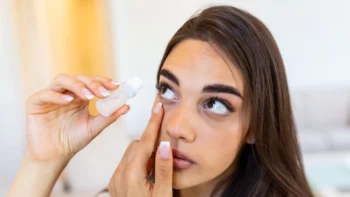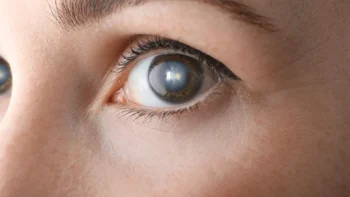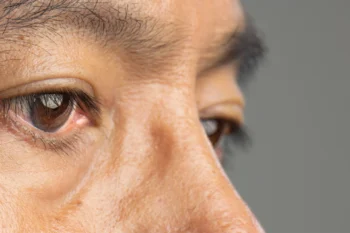Most people face problems with their vision at some point in their lives. Some conditions are minor and go away over time or with the help of over-the-counter treatments. Other conditions, however, may need more intensive care from a specialist.
Eye conditions include any medical issue that impacts your sight. Conditions can range from minor eye irritation to complete vision loss. Most problems are common and can be treated by a Las Vegas ophthalmologist — an osteopathic doctor with advanced medical and surgical training. These doctors may recommend various treatments, including vision therapy, medication, or surgery to resolve your difficulty.
Whether you’ve noticed a change in your vision or you’re planning for your future eye health, it’s crucial to stay on top of the various eye conditions you might encounter, especially as you age. Early detection and diagnosis are the first steps toward full recovery.
Why is Your Eye Health So Important?
Your eyesight is one of your most essential senses. 80% of everything we perceive comes through the eyes.
Eye conditions can impact your ability to see clearly — or even see at all. More than 4.2 million Americans over the age of 40 have low vision or are legally blind. The leading causes of vision loss are eye conditions like age-related macular degeneration, cataracts, diabetic retinopathy, and glaucoma. Other common eye disorders, like dry eyes or allergies, can also affect the quality of your vision.
By protecting your eyes, you can reduce the risk of vision loss over time. You can also stay on top of any developing conditions that become more prevalent with age.
One of the best ways to protect your eye health is to visit an eye doctor for regular checkups. As a form of preventative care, routine checkups help you identify and treat conditions as they emerge.
6 Eye Conditions to Know About
Regular checkups can help you identify issues early, but it’s also important that you know what details may be serious. Many eye conditions have few early symptoms and are difficult to detect on your own until after the situation has progressed.
If you know what to look for — and when it’s time to see a doctor — you’ll be better prepared to take care of your eyes. Here are some of the most common eye conditions you should discuss with your ophthalmologist.
1. Eye Allergies
Eye allergies can create a common reaction to irritants like pollen, mold spores, dust mites, or dander. If you’re allergic to a particular irritant, you might experience symptoms like:
- Redness
- Itchiness
- Swelling
- Watery eyes
- Feeling like there’s something in the eye
These symptoms can either be persistent or emerge after exposure to an allergen. After the reaction starts, it can be hard to stop rubbing or touching the eyes, which can only make the irritation worse.
Treatment options include antihistamines and prescription eye drops to reduce swelling and control the allergic reaction.
2. Dry Eyes
Dry eye syndrome occurs when there isn’t enough moisture or lubrication on the eye’s surface. Some may experience only minor irritation, while others can experience severe inflammation or even scarring of the eye.
Treatment for dry eyes can include eye drops, prescription medication, tear gland plugs, or in severe cases, surgery.
3. Macular Degeneration
About 1.8 million Americans over 40 are affected by age-related macular degeneration, while another 7.3 million are at risk of developing the condition. Macular degeneration is the leading cause of vision loss for older patients — and there’s no way to reverse its effects.
The condition causes the macula — the center of the retina — to deteriorate, leading to a gradual loss in vision over time. It can damage sharp and central vision, which aids in everyday tasks like reading or driving.
Signs of macular degeneration can include drusen, which are tiny yellow or white deposits under the retina. For some forms of macular degeneration, you might notice that straight lines appear wavy or distorted.
While the damage caused by macular degeneration can’t be reversed, a combination of laser therapy and medications can slow the deterioration.
4. Cataracts
Cataracts cloud the eye’s lens. This widely occurring condition affects more than half of all Americans over 65.
As cataracts form, they leave dense, clouded spots in the vision. Cataracts block light from the retina and obscure vision.
When cataracts are mild, you may not notice many symptoms. If left untreated, however, they can lead to:
- Cloudy or blurry vision
- Faded colors
- Difficulty seeing at night
- Lights (lamps, headlights, sunlight, etc.) appear too bright
- A halo appears around lights
- Double vision
Over time, cataracts can lead to vision loss. However, the treatment is relatively simple and accessible. Cataract surgery replaces the clouded lens with a new, artificial lens.
5. Diabetic Retinopathy
Diabetic retinopathy (DR) is a complication of diabetes. As blood vessels in the retina are damaged, DR can slowly lead to blindness in both eyes.
DR can be managed through early diagnosis and control of blood sugar and blood pressure. However, if DR isn’t caught soon enough, it can lead to vision loss. Certain medications, injections, laser therapy, and surgeries can reduce damage to the retina.
6. Glaucoma
Glaucoma can damage the optic nerve. Normal fluid pressure increases and causes a buildup, which stops the optic nerve from transmitting images to the brain. If this pressure isn’t relieved, it can lead to a permanent loss of vision.
While there may not be many early signs, the disease progresses quickly and can lead to blindness within just a few years. Symptoms include:
- Tunnel vision
- Loss of peripheral vision
- Blurry eyes
- Redness of the eyes
Your doctor may give you prescription eye drops to reduce the pressure in your eyes. Other treatment options include laser therapy and surgery to help the fluid drain from the eye.
When It’s Time to See a Las Vegas Ophthalmologist
If you notice a sudden change in your vision, abnormality in the appearance of your eye, or unexplained pain or discomfort, it might be time to see a Las Vegas ophthalmologist.
Schedule regular checkups with your eye doctor to stay ahead of developing conditions. Remember that many of these conditions won’t have any warning signs. The damage may already have been done by the time you notice symptoms. The sooner you catch issues, the better. If you’re looking for a Las Vegas ophthalmologist to help you stay on top of your eye health, look no further than Brimhall Eye. Our experienced team will help you treat and prevent any issues as they arise. Schedule an appointment for a checkup or a diagnostic exam today.





